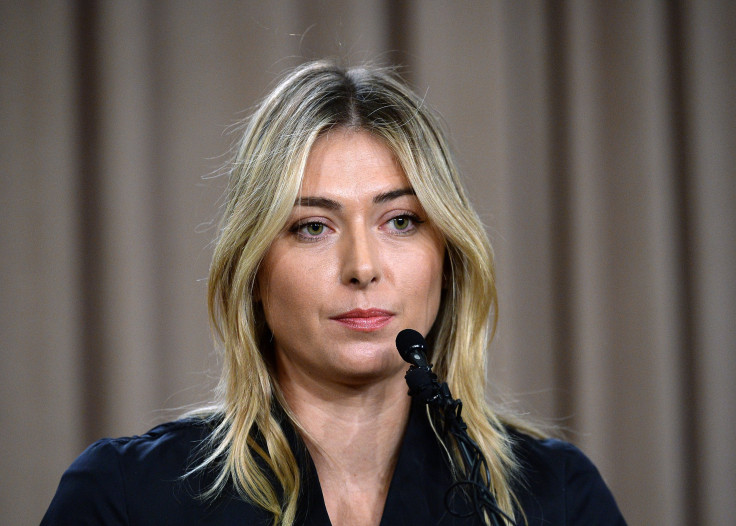Rio Olympics 2016: Will Tennis Star Maria Sharapova Compete This Summer After Failing Drug Test?

Maria Sharapova's career is in turmoil after Monday's announcement that she failed a drug test at the Australian Open in January. The Russian tennis star is expected to face a lengthy ban from the International Tennis Federation for her use of meldonium, and her status for the 2016 Summer Olympics in Rio de Janeiro is also in jeopardy.
However, a top Russian international athletics executive believes the five-time Grand Slam champion will be able to participate in the Games.
"I think this is just a load of nonsense," Russian Tennis Federation president Shamil Tarpishchev said to the Tass news agency. "I think Sharapova will play at the Olympics.
"The sportsmen take what they are given by the physiotherapists and by the doctors. However, we will need to see how this will develop," he added.
Tarpishchev has been known to make outlandish comments — he once referred to superstar American tennis sisters Serena and Venus Williams as “the Williams brothers” — and his optimism about Sharapova's situation may be clouded.
For one, Women’s Tennis Association (WTA) chief executive Steve Simon’s comments following Sharapova’s revelation shows even a suspension on the shorter side will keep her out of the running for a second career Olympic medal.
"The range that has been discussed so far is between six months and four years,” Simon said to BBC Radio 5. “It'll be up to the independent tribunal to go through and review it to make that determination."
Sharapova made clear meldonium was only just banned on Jan. 1 of his year by the World Anti-Doping Agency, that she was taking the substance under the care of her family doctor for the past 10 years, and knew the drug under a different name, mildronate. However, the 28-year-old also admitted to receiving a letter that updated and warned of newly banned substances in December.
Sharapova said she first began taking the drug 10 years ago after several health issues, though the drug’s Latvian manufacturer Grindeks told the Associated Press that it’s generally used over a course of just four to six weeks.
"Depending on the patient's health condition, treatment course of meldonium preparations may vary from four to six weeks,” the company told the AP in an email statement. “Treatment course can be repeated twice or thrice a year. Only physicians can follow and evaluate patient's health condition and state whether the patient should use meldonium for a longer period of time."
The company added meldonium can aid in "work capacity" and during rehabilitation periods but that it doesn't believe it can improve athlete performance.
Should anti-doping authorities take Sharapova’s admission and promise to fully cooperate with the pending investigation into account, even a six-month ban would rule her out of Rio. The games are scheduled to begin Aug. 5.
"I take great responsibility and professionalism in my job every day. I made a huge mistake. I've let my fans down, I've let this sport down,” Sharapova told reporters. "I know that with this I face consequences and I don't want to end my career this way and I hope that I will be given another chance to play this game again.”
Sharapova won her only Olympic medal, a silver, at the 2012 London Games.
© Copyright IBTimes 2024. All rights reserved.





















